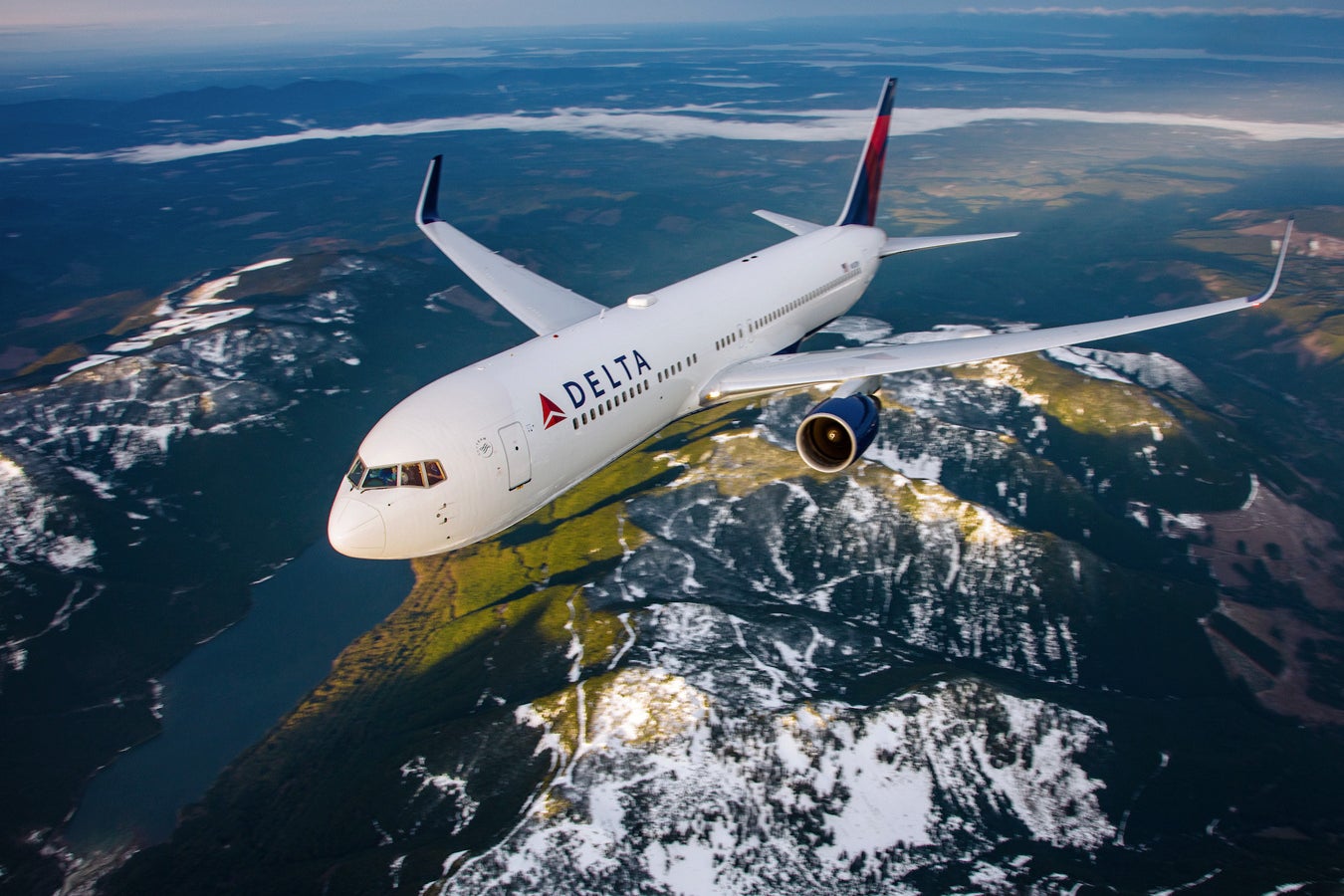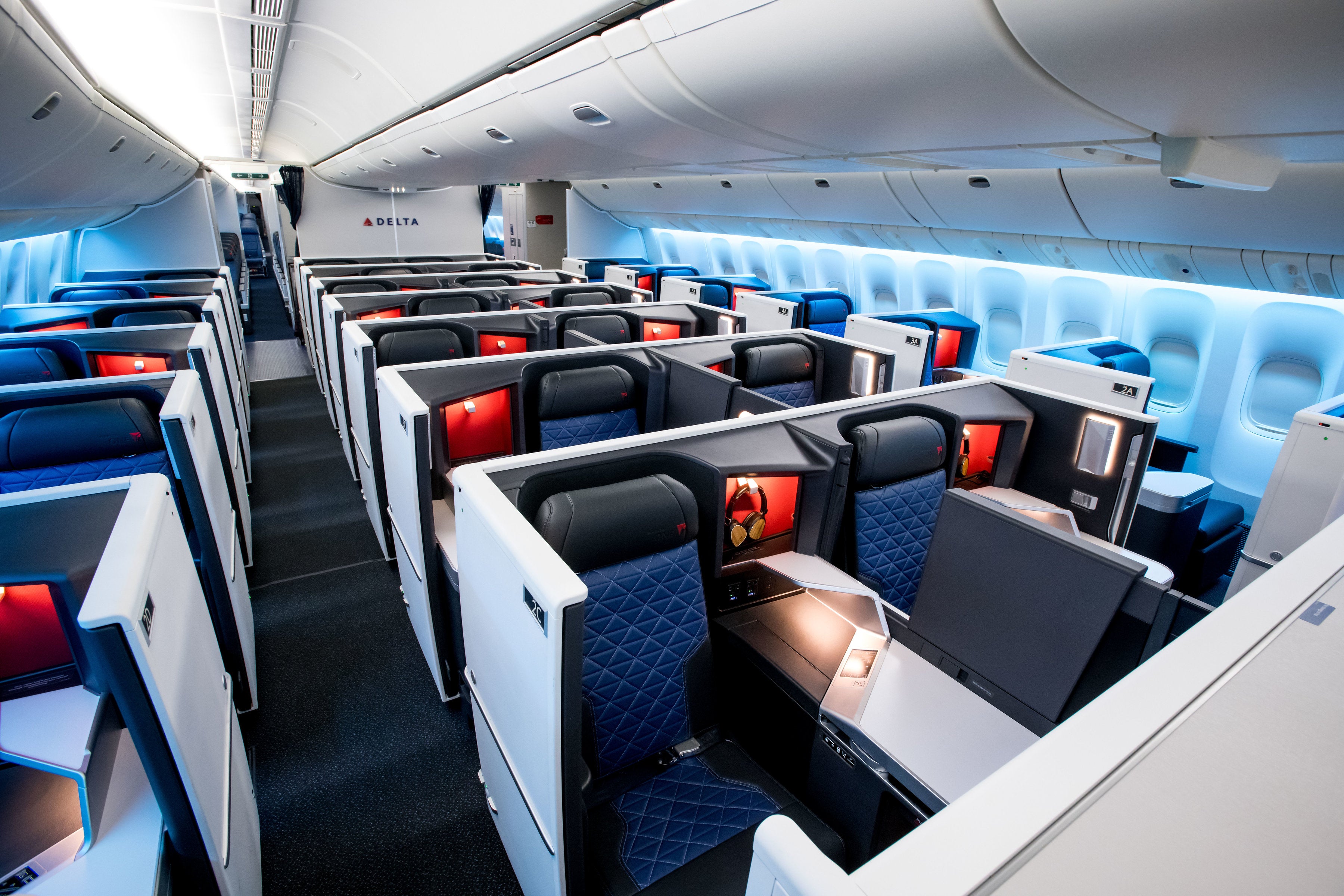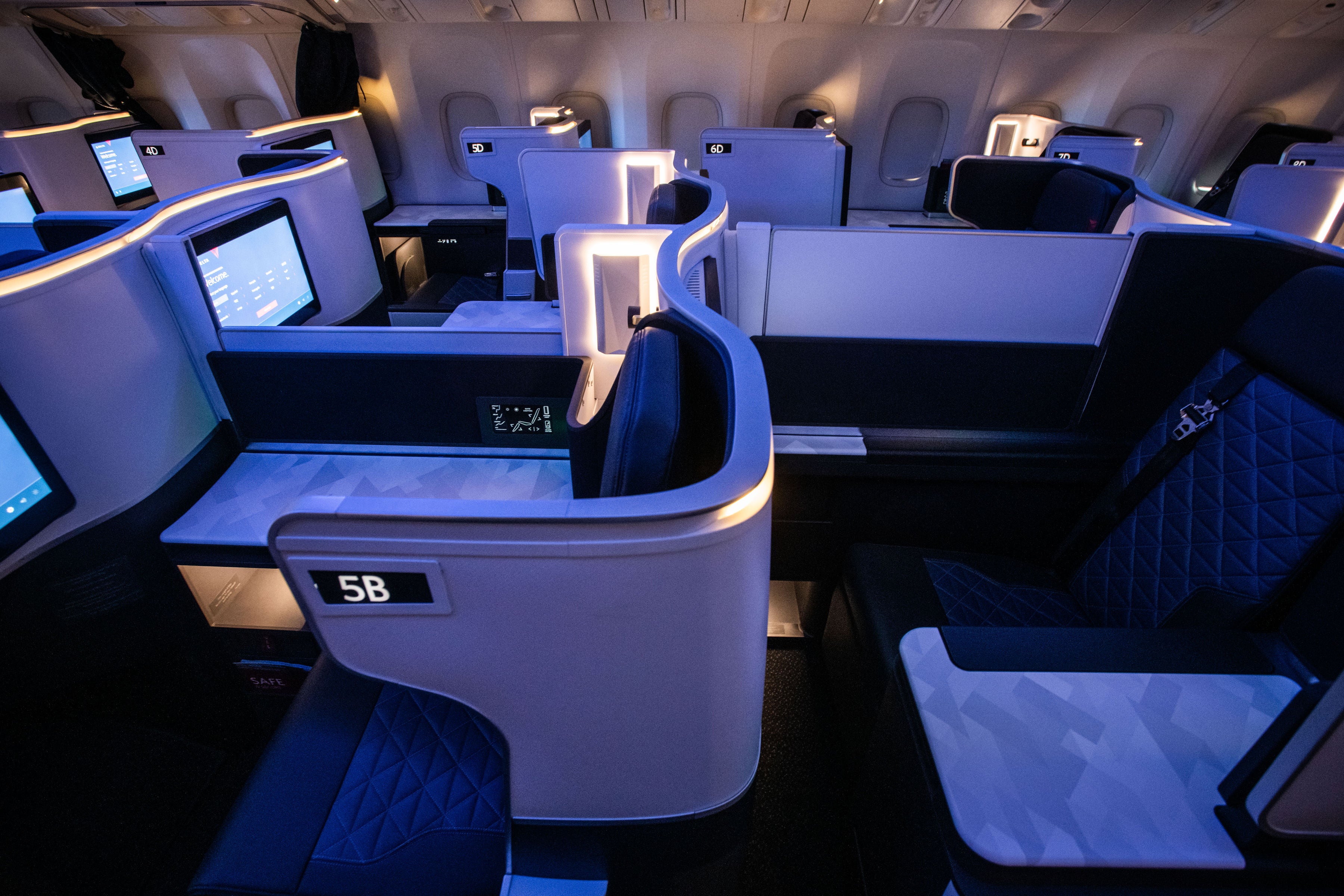Delta Air Lines has revealed that it wants 20 percent of flights to be priced using AI by the end of the year, up from three percent presently.
Ultimately, it wants all flights to be ticketed using artificial intelligence.
What does this mean for passengers?
We asked financial and travel experts, from a frequent flier to a former Walmart and Amazon pricing analyst, for their take on what the move will mean for prices and consumer trust in Delta.
And one thing is clear. It's a hot debate.
Here we explain how AI pricing works, plus the good, the bad and the potentially ugly of the system, including why business-class passengers, in particular, should be concerned.
How will Delta's AI pricing work?

Think of AI pricing as taking dynamic pricing, which is already around, to the next level.
Sean Cudahy from The Points Guy explains: "We've all searched a flight, found a price, and come back the next day to see that it's spiked by $100. Or, maybe, you got lucky and it dropped by $50. Expect more of that.
"Delta says its AI pricing tool amounts to a 'super-analyst' working around the clock. Expect that super analyst to constantly be calculating what it would take to get a passenger to book a seat, or what price point it could raise a fare to, to maximize profits without risking the seat going unsold."
Delta's system is supplied by Israeli start-up Fetcherr, which will set the fare and the number of seats offered at that fare for each shopper in near real time.
Nabeel Siddiqi, CEO at Price Perfect, likens it to the way merchants in markets of old would "read" a customer and charge based on what they think the customer could afford.
The pros for passengers
Gonzalo Vazquez, CEO Airlines AI Studio at Globant, applauds the move, telling The Independent that it "reflects a broader shift in the industry toward personalized pricing, using AI to better match fares to individual customer preferences and willingness to pay".
He adds: "By moving away from rigid, legacy pricing structures, Delta is embracing a more modern and dynamic retail model that can benefit both the airline and the passenger.
"Airlines have long relied on outdated systems that limit flexibility and responsiveness to real-time market signals.
"Embracing AI-driven pricing allows Delta to innovate in how value is offered and perceived, bringing the airline closer to modern retail practices seen in other industries."
He argues that AI pricing will mean a shift for passengers towards "more tailored options, potentially unlocking better deals for those who are price-sensitive while giving others the ability to pay for added value or convenience". In short, he says, it "opens the door to more flexibility in how travel is packaged and sold".
Philip Carls, board member at Priceagent and former pricing lead at both Walmart and Amazon, agrees that there are positives.
He says: "There may be lower prices for some customers. For instance, budget-conscious travelers may see discounted fares to incentivise bookings, and frequent fliers could get exclusive discounts or upgrades, with some customers benefitting from dynamic deals if Delta uses data to offer last-minute discounts to fill seats."
The cons for passengers

"Business travelers should pay attention," says Sam Hollander, Co-Founder at Autopilot. "If Delta's AI knows you consistently book premium cabins and expense through corporate accounts, why wouldn't it test higher price points? The algorithm will identify customers with lower price sensitivity and adjust accordingly."
Nabeel Siddiqi remarks that this could cause a headache for Delta.
He explains: "Customers who could afford more will end up paying a higher amount, which they won't be happy about. This can be a PR nightmare due to annoyed customers who feel taken advantage of."
Vaclav Vincalek, CTO at Hiswai, shares these concerns, remarking that "as flashy and trendy as the announcement is, one should consider the emotional impact on customers when they find out that for the same row and aisle seat, somebody paid 20 percent less".
He adds: "Imagine being in a grocery store and learning that you just paid $5 for a carton of milk that the person in front of you got for $4."
Trust issues

Several experts stressed that AI pricing could fuel mistrust in Delta.
Andrew Romanyuk, Co-Founder, SVP of Growth at Pynest, said: "The worry is that it becomes another black box. If people don't understand what's going on, they'll just assume the worst. Is it because they waited too long? Because they booked from an expensive zip code? Because the algorithm thinks they have more money?
"AI pricing isn't bad in itself. But unless it's done with some empathy for the passenger, it's going to feel shady, even if the math checks out."
Robin Anderson, Head of Product Management, Tribe Payments, said: "The challenge is to make AI a tool for better experiences, not confusion.
"That means clear pricing logic, transparency, and a smooth payment journey. Trust is a fragile commodity in travel.
"If Delta can roll this out with clarity and control, it could set a new standard for how we book flights. If not, 'intelligent' pricing could quickly start to feel like unpredictable pricing, and that's when trust breaks down."
Is there a way to sidestep AI pricing?
Yes.
Sam Hollander said: "Airlines track you through browser cookies even when logged out. Using incognito mode and a VPN [virtual private network] creates a fresh digital fingerprint, potentially helping you avoid being flagged as a high-value customer who might pay premium prices."
The result for Delta?
Happy Delta shareholders will be the upshot from the AI revolution, it’s argued.
Sean from The Points Guy says: "This tool will predict and monitor supply and demand trends, predict how much it can charge a customer for a ticket without risking losing that customer and predict how much it might need to discount a seat to avoid that seat going empty ('spoiling inventory' in airline parlance).
"If this tool makes Delta more effective in those tactics, I imagine the shareholders will be happy."
Man who hijacked plane charged after over 100 flights disrupted at Vancouver airport
Air India resume some flights following ‘safety pause’ in aftermath of deadly crash
Will AI lower or raise flight prices? Delta set to rely on it for ticket costs
Frequent fliers reveal the upgrade tips that actually work
I try United Airlines’ business class suite — here’s what I love about it (and what I don’t)







